Unveiling Differences: Licensed vs Certified Aestheticians’ Skills

Becoming a licensed aesthetician involves completing state-approved programs, passing comprehensive…….
Welcome to an in-depth exploration of the profession that is transforming the beauty and wellness sector—the licensed aesthetician. In today’s fast-paced world, where self-care and aesthetics play a significant role in personal well-being, licensed aestheticians have emerged as experts dedicated to enhancing physical appearance and promoting skin health. This article aims to provide an extensive guide, delving into various aspects of this dynamic field, from its foundational principles to future trends. By the end, readers will grasp the impact, opportunities, and challenges associated with becoming a licensed aesthetician, empowering them to navigate this evolving industry.
Definition: A licensed aesthetician is a trained professional who specializes in skin care, cosmetics, and beauty treatments. They possess the expertise and qualifications to offer a range of services aimed at improving skin health, enhancing natural beauty, and providing personalized aesthetic solutions.
Core Responsibilities:
Skin Care Expertise: Educating clients about different skin types, conditions (e.g., acne, rosacea), and tailored skincare routines. They recommend and apply products, perform facials, and provide treatments to address various skin concerns.
Cosmetic Procedures: Conducting non-invasive cosmetic procedures such as chemical peels, microdermabrasion, and laser therapy to improve skin texture, reduce wrinkles, and enhance overall appearance.
Makeup Application: Mastering the art of makeup application, offering techniques for everyday looks or special occasions. They can create custom makeup palettes, teach clients, and ensure products are suitable for individual skin needs.
Waxing, Manicure, Pedicure: Providing body waxing services, as well as nail care treatments, ensuring client comfort and achieving desired results.
Personalized Treatments: Customizing treatments based on client goals, preferences, and feedback, fostering a collaborative environment.
Historical Context: The term “aesthetician” has its roots in the ancient Greek word ‘aisthēsis,’ meaning sensation or perception. Over time, it evolved to encompass the art and science of beauty. In the 20th century, with the rise of cosmetics and skincare industries, licensed aestheticians began gaining recognition as qualified professionals. Today, they play a pivotal role in spas, salons, medical clinics, and wellness centers worldwide.
The influence of licensed aestheticians knows no borders, with their services sought after internationally. Here’s a glimpse into the global landscape:
North America: The United States and Canada lead in terms of industry sophistication, featuring highly specialized aesthetic practices. Lasers, light therapy, and advanced skincare treatments are prevalent.
Europe: Countries like Germany and France are renowned for their cosmetic surgery and non-invasive procedures, attracting clients worldwide. The UK has a strong focus on education and training standards.
Asia Pacific: Rapid economic growth in countries like Japan and South Korea has led to advanced skincare technologies and innovative treatments. India offers affordable yet high-quality aesthetic services.
Middle East and Africa: These regions are experiencing a boom in luxury spas and wellness retreats, attracting top aestheticians from around the globe.
Key Global Trends:
| Trend | Description |
|---|---|
| Natural Skincare | A growing preference for organic, plant-based products, driving demand for aesthetic professionals who can recommend effective yet gentle skincare routines. |
| Non-Invasive Procedures | Increasing popularity of minimal invasive treatments like Botox and filler injections, reflecting a desire for subtle enhancements without surgery. |
| Customized Treatments | Personalization is key, with clients seeking tailored skincare and cosmetic plans to address specific concerns and achieve desired outcomes. |
| Digital Integration | Technology integration in aesthetic practices, including online consultations, e-commerce product sales, and virtual training, enhances accessibility and efficiency. |
The licensed aesthetician industry is a significant contributor to global economies, with varying market dynamics across regions.
Market Size: According to a 2022 report by Grand View Research, the global aesthetic services market size was valued at USD 156.3 billion in 2021 and is projected to grow at a CAGR of 8.7% from 2022 to 2030.
Investment Patterns: High-end spas and wellness centers invest heavily in trained aestheticians, offering competitive salaries and benefits. Start-up clinics often focus on affordable services to attract a wider client base.
Economic Impact: The industry supports numerous businesses, from product manufacturers to retail outlets. Well-trained aestheticians can boost business revenue through client retention and referrals.
Technology plays a pivotal role in shaping the future of licensed aestheticians:
Advanced Skincare Products: Innovations in skincare formulation enable more effective products that target specific skin concerns, allowing aestheticians to offer tailored solutions.
Laser and Light Therapy: Lasers and light-based treatments have evolved, offering safer, more precise options for skin rejuvenation, tattoo removal, and hair reduction.
Virtual Reality (VR) in Training: VR simulations provide realistic training environments, enabling aestheticians to practice procedures without risk to clients.
Telehealth Services: Online consultations and remote monitoring allow licensed aestheticians to offer ongoing care to clients between in-person visits.
Artificial Intelligence (AI): AI-powered tools assist in product recommendations, treatment planning, and even predictive analytics for skin health.
The legal framework governing licensed aestheticians varies across jurisdictions, ensuring client safety and professional standards:
Licensing Requirements: Most countries mandate formal education, training, and passing a licensing exam to practice as an aesthetician. The duration and curriculum vary, typically including coursework in anatomy, physiology, skincare pathology, cosmetics, and business practices.
Regulatory Bodies: Organizations like the International Association of Esthetic Professionals (IAEP) set global standards and provide certification programs. National beauty and health regulatory bodies oversee licensing and enforce regulations.
Compliance Standards: Aestheticians must stay updated with industry developments and adhere to safety protocols, including proper sanitization practices, waste disposal, and allergy testing for products.
Despite their growing importance, licensed aestheticians face several challenges:
Competition from Unregulated Practices: Inexpensive, unskilled services offered by unqualified individuals can undermine the reputation of licensed aestheticians and put client safety at risk.
Keeping Up with Rapid Technological Changes: The industry’s fast pace requires continuous learning to stay abreast of new technologies, treatments, and product formulations.
Client Expectations and Education: Clients often expect immediate results, which may not be realistic for certain treatments. Educating clients about the benefits and limitations of various procedures is crucial.
Strategic Solutions:
Advocacy and Awareness: Licensed aesthetician associations can collaborate with regulatory bodies to raise awareness among consumers, ensuring they seek qualified professionals.
Continuous Education: Industry organizations should offer regular training programs to keep aestheticians updated on advancements and best practices.
Client Consultation Emphasis: Building trust through comprehensive consultations helps set realistic expectations and ensures client satisfaction.
Setting: A bustling metropolis with a thriving wellness scene.
Challenge: A local spa sought to differentiate itself in a competitive market by offering specialized aesthetic services.
Solution: They hired and trained a team of licensed aestheticians, focusing on advanced skincare treatments and non-invasive procedures. The spa partnered with dermatologists to provide expert consultations, ensuring client safety and satisfaction.
Outcome: The spa experienced a 25% increase in client retention within the first year, attracting a loyal customer base seeking personalized aesthetic solutions.
Context: A small rural community with limited access to beauty and wellness services.
Initiative: Local healthcare providers established a wellness center, employing licensed aestheticians to provide essential skincare and cosmetic services.
Impact: The center became a one-stop destination for residents, improving overall skin health and enhancing the sense of well-being in the community. This model expanded to nearby towns, filling critical service gaps.
The licensed aesthetician profession is poised for significant growth, driven by several emerging trends:
Telehealth Integration: The rise of telehealth will enable more accessible aesthetic services, especially in remote areas, through online consultations and virtual treatments.
Personalized Skincare: Advanced technology and AI will facilitate highly personalized skincare routines, catering to individual genetic profiles and lifestyle factors.
Sustainability Focus: Eco-friendly products and practices will gain prominence, appealing to environmentally conscious consumers.
Aesthetic Technology Startups: Innovations in aesthetics-focused startups will disrupt the industry, offering new treatment modalities and business models.
Licensed aestheticians are at the forefront of transforming the beauty and wellness industry, empowering individuals to embrace their natural radiance while promoting healthy skin and self-care practices. As technology advances and consumer preferences evolve, this profession will continue to grow in complexity and importance. By embracing education, staying abreast of trends, and addressing challenges head-on, licensed aestheticians can shape a future where beauty and wellness are accessible, personalized, and beneficial for all.
Q: What qualifications do I need to become a licensed aesthetician?
A: To practice as a licensed aesthetician, you typically require formal education from an accredited program, passing a licensing exam, and adhering to local regulatory standards. The specific requirements vary by region.
Q: How can I stay updated with the latest advancements in aesthetic technology?
A: Industry associations, online platforms, and professional journals offer resources for continuous learning. Attending workshops, webinars, and conferences is also beneficial to stay informed about technological developments.
Q: Are there any risks associated with cosmetic procedures performed by aestheticians?
A: When performed by qualified, licensed aestheticians adhering to safety protocols, cosmetic procedures are generally safe. However, as with any procedure, there are potential risks and side effects, so comprehensive consultations and informed consent are essential.
Q: How can I differentiate myself in a competitive market as an aesthetician?
A: Specializing in a niche area, offering personalized services, staying updated with industry trends, and building a strong client relationship network can help you stand out in the competition.

Becoming a licensed aesthetician involves completing state-approved programs, passing comprehensive…….
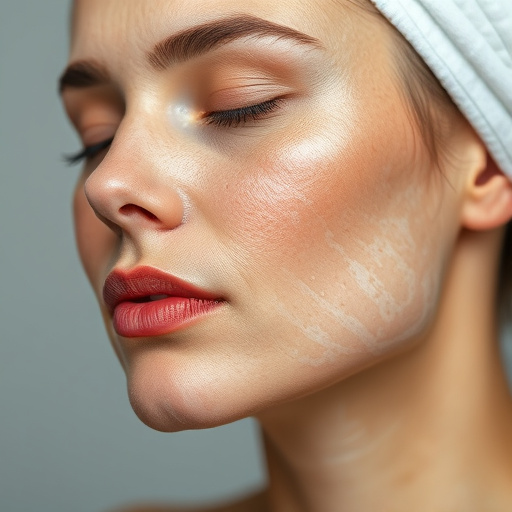
Licensed aestheticians are highly trained skincare experts offering personalized treatments and guid…….
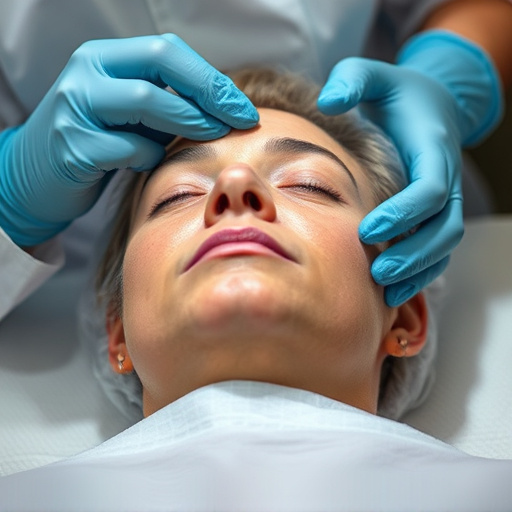
A licensed aesthetician offers specialized non-surgical skin treatments, providing personalized skin…….
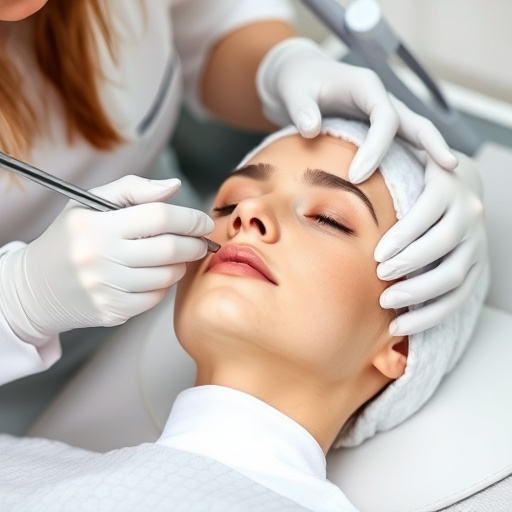
Licensed aestheticians are key players in the skincare industry, offering expert non-surgical treatm…….
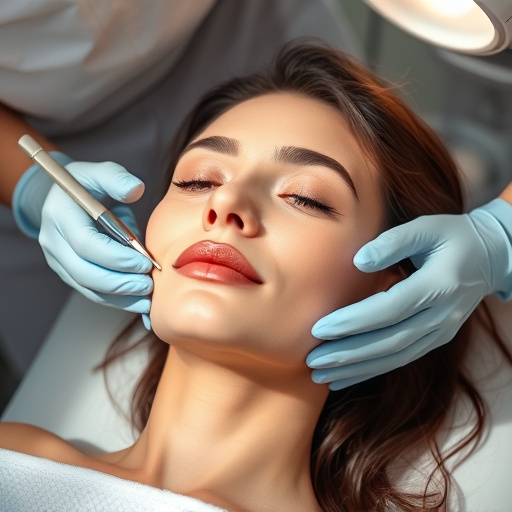
A licensed aesthetician offers advanced skin care treatments, combining science and art to address s…….
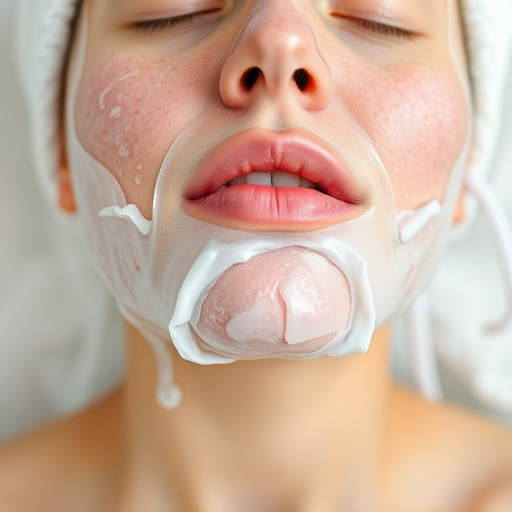
When seeking beauty services from a licensed aesthetician, verify state licensing and qualifications…….
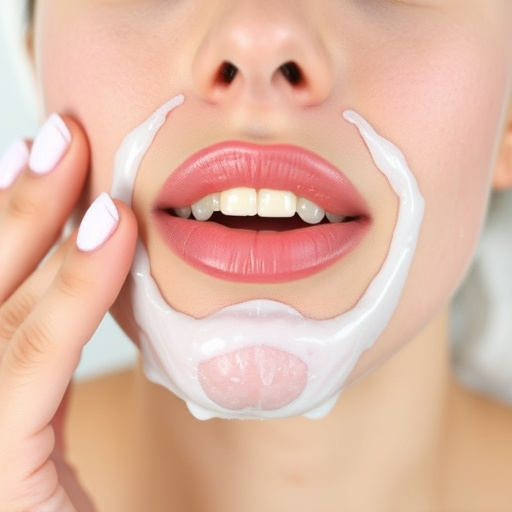
By 2025, licensed aestheticians are in high demand for their specialized skills in non-surgical cosm…….
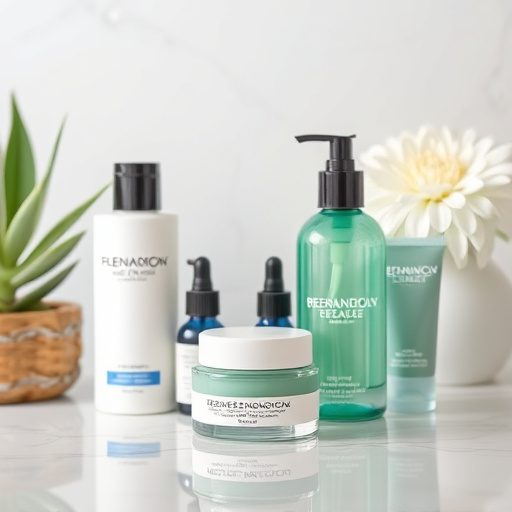
Licensed aestheticians play a crucial role in skincare by offering specialized treatments like facia…….

A licensed aesthetician offers specialized skincare and cosmetic treatments, diagnoses skin conditio…….